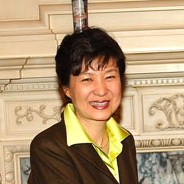
The dynamics of triangular interaction among South Korea, Japan and China have constituted a central security paradox in Northeast Asia since the late 19th century, with South Korea cursed by its geographical position at the conflux of great power interests in the region. But the division of the Korean Peninsula and the aftereffects of Cold War rivalry, replaced in the post-Cold War world by the U.S.-North Korea nuclear standoff, have served both to obscure Sino-Japanese tensions over the Korean Peninsula, and to spur periodic trilateral and multilateral cooperation aimed at resolving the regional Cold War hangover caused by Korea’s division. […]

